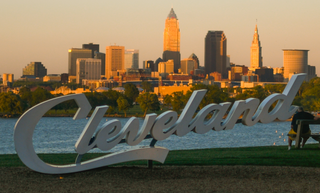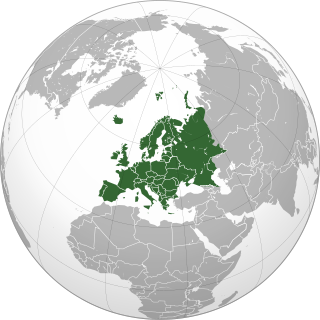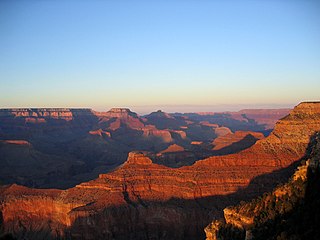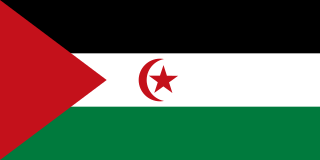
The Balkans, corresponding partially with the Balkan Peninsula, is a geographical area in southeastern Europe with various geographical and historical definitions. The region takes its name from the Balkan Mountains that stretch throughout the whole of Bulgaria. The Balkan Peninsula is bordered by the Adriatic Sea in the northwest, the Ionian Sea in the southwest, the Aegean Sea in the south, the Turkish straits in the east, and the Black Sea in the northeast. The northern border of the peninsula is variously defined. The highest point of the Balkans is Musala, 2,925 metres (9,596 ft), in the Rila mountain range, Bulgaria.

Cleveland, officially the City of Cleveland, is a city in the U.S. state of Ohio and the county seat of Cuyahoga County. Located in Northeast Ohio along the southern shore of Lake Erie, it is situated across the U.S. maritime border with Canada and lies approximately 60 miles (97 km) west of Pennsylvania.

Europe is a continent comprising the westernmost peninsulas of Eurasia, located entirely in the Northern Hemisphere and mostly in the Eastern Hemisphere. It shares the continental landmass of Afro-Eurasia with both Africa and Asia. It is bordered by the Arctic Ocean to the north, the Atlantic Ocean to the west, the Mediterranean Sea to the south, and Asia to the east. Europe is commonly considered to be separated from Asia by the watershed of the Ural Mountains, the Ural River, the Caspian Sea, the Greater Caucasus, the Black Sea and the waterways of the Turkish straits.

In the history of Europe, the Middle Ages or medieval period lasted approximately from the late 5th to the late 15th centuries, aligning with the post-classical period of global history. It began with the fall of the Western Roman Empire in 476 AD and ended with the fall of Constantinople in 1453 AD before transitioning into the Renaissance and then the Age of Discovery. The Middle Ages is the middle period of the three traditional divisions of Western history: antiquity, medieval, and modern. The medieval period is itself subdivided into the Early, High, and Late Middle Ages. Late medieval scholars at first called these the Dark Ages in contrast to classical antiquity; the accuracy of the term has subsequently been challenged.

Morocco, officially the Kingdom of Morocco, is a country in the Maghreb region of North Africa. It overlooks the Mediterranean Sea to the north and the Atlantic Ocean to the west, and has land borders with Algeria to the east, and the disputed territory of Western Sahara to the south. Morocco also claims the Spanish exclaves of Ceuta, Melilla and Peñón de Vélez de la Gomera, and several small Spanish-controlled islands off its coast. It spans an area of 446,300 km2 (172,300 sq mi) or 710,850 km2 (274,460 sq mi), with a population of roughly 37 million. Its official and predominant religion is Islam, and the official languages are Arabic and Berber (Tamazight); French and the Moroccan dialect of Arabic are also widely spoken. Moroccan identity and culture is a mix of Arab, Berber, African and European cultures. Its capital is Rabat, while its largest city is Casablanca.

Perth is the capital and largest city of Western Australia and the fourth most populous city in Australia and Oceania, with a population of 2.1 million living in Greater Perth. Perth is part of the South West Land Division of Western Australia, with most of the metropolitan area on the Swan Coastal Plain between the Indian Ocean and the Darling Scarp. The city has expanded outward from the original British settlements on the Swan River, upon which the city's central business district and port of Fremantle are situated. Perth is located on the traditional lands of the Whadjuk Noongar people, where Aboriginal Australians have lived for at least 45,000 years.

The spaghetti Western is a broad subgenre of Western films produced in Europe. It emerged in the mid-1960s in the wake of Sergio Leone's film-making style and international box-office success. The term was used by foreign critics because most of these Westerns were produced and directed by Italians.

Western Sahara is a disputed territory on the northwest coast and in the Maghreb region of North and West Africa. Western Sahara is the last African colonial state yet to achieve its independence. About 20% of the territory is controlled by the self-proclaimed Sahrawi Arab Democratic Republic (SADR); the remaining 80% of the territory is occupied and administered by neighboring Morocco. It has a surface area of 266,000 square kilometres (103,000 sq mi). It is the second most sparsely populated country in the world and the most sparsely populated in Africa, mainly consisting of desert flatlands. The population is estimated at just over 500,000, of which nearly 40% live in Laayoune, the largest city in Western Sahara.

Western Australia is a state of Australia occupying the western 33 percent of the land area of Australia, excluding external territories. It is bounded by the Indian Ocean to the north, west and south, the Northern Territory to the north-east, and South Australia to the south-east. Western Australia is Australia's largest state, with a total land area of 2,527,013 square kilometres (975,685 sq mi). It is the second-largest country subdivision in the world, surpassed only by Russia's Sakha Republic. As of 2021, the state has 2.76 million inhabitants—11 percent of the national total. The vast majority live in the south-west corner; 79 percent of the population lives in the Perth area, leaving the remainder of the state sparsely populated.

Western Europe is the western region of Europe. The region's extent varies depending on context.

The Western is a genre of fiction typically set in the American frontier between the California Gold Rush of 1849 and the closing of the frontier in 1890, and commonly associated with folk tales of the Western United States, particularly the Southwestern United States, as well as Northern Mexico and Western Canada.

The Western Wall, known in the West as the Wailing Wall, and in Islam as the Buraq Wall, is a portion of ancient limestone wall in the Old City of Jerusalem that forms part of the larger retaining wall of the hill known to Jews and Christians as the Temple Mount. Just over half the wall's total height, including its 17 courses located below street level, dates from the end of the Second Temple period, and is believed to have been begun by Herod the Great. The very large stone blocks of the lower courses are Herodian, the courses of medium-sized stones above them were added during the Umayyad period, while the small stones of the uppermost courses are of more recent date, especially from the Ottoman period.

The Western United States is the region comprising the westernmost U.S. states. As American settlement in the U.S. expanded westward, the meaning of the term the West changed. Before around 1800, the crest of the Appalachian Mountains was seen as the western frontier. The frontier moved westward and eventually the lands west of the Mississippi River were considered the West.

The Western Ghats, also known as the Sahyadri mountain range, is a mountain range that covers an area of 160,000 km2 (62,000 sq mi) in a stretch of 1,600 km (990 mi) parallel to the western coast of the Indian peninsula, traversing the states of Gujarat, Maharashtra, Goa, Karnataka, Kerala and Tamil Nadu. It is a UNESCO World Heritage Site and is one of the 36 biodiversity hotspots in the world. It is sometimes called the Great Escarpment of India. It contains a very large proportion of the country's flora and fauna, many of which are endemic to this region. The Western Ghats are older than the Himalayas. They influence Indian monsoon weather patterns by intercepting the rain-laden monsoon winds that sweep in from the south-west during late summer. The range runs north to south along the western edge of the Deccan Plateau and separates the plateau from a narrow coastal plain called the Western Coastal Plains along the Arabian Sea. A total of 39 areas in the Western Ghats, including national parks, wildlife sanctuaries and reserve forests, were designated as world heritage sites in 2012 – twenty in Kerala, ten in Karnataka, six in Tamil Nadu and four in Maharashtra.

Western esotericism, also known as esotericism, esoterism, and sometimes the Western mystery tradition, is a term scholars use to categorise a wide range of loosely related ideas and movements that developed within Western society. These ideas and currents are united since they are largely distinct both from orthodox Judeo-Christian religion and Enlightenment rationalism. It has influenced various forms of Western philosophy, mysticism, religion, pseudoscience, art, literature, and music.

The term Western Roman Empire is used in modern historiography to refer to the western provinces of the Roman Empire, collectively, during any period in which they were administered separately from the eastern provinces by a separate, independent Imperial court. Particularly during the period from 395 to 476 AD, there were separate, coequal courts dividing the governance of the empire into the Western provinces and the Eastern provinces with a distinct imperial succession in the separate courts. The terms Western Roman Empire and Eastern Roman Empire were coined in modern times to describe political entities that were de facto independent; contemporary Romans did not consider the Empire to have been split into two empires but viewed it as a single polity governed by two imperial courts for administrative expediency. The Western Roman Empire collapsed in 476, and the Western imperial court in Ravenna was formally dissolved by Justinian I in 554 AD.

Isambard Kingdom Brunel was a British civil engineer and mechanical engineer, who is considered "one of the most ingenious and prolific figures in engineering history", "one of the 19th-century engineering giants", and "one of the greatest figures of the Industrial Revolution, [who] changed the face of the English landscape with his groundbreaking designs and ingenious constructions". Brunel built dockyards, the Great Western Railway (GWR), a series of steamships including the first purpose-built transatlantic steamship, and numerous important bridges and tunnels. His designs revolutionised public transport and modern engineering.

According to James Kurth, an American conservative professor emeritus at Swarthmore College, the Western world, also known as the West, primarily refers to various nations and states in the regions of Australasia, Europe, and the Americas. The Western world likewise is called the Occident in contrast to the Eastern world known as the Orient. The West is considered an evolving concept; made up of cultural, political, and economic synergy among diverse groups of people, and not a rigid region with fixed borders and members. Definitions for "Western world" vary according to context and perspectives.

The Sahrawi Arab Democratic Republic, also known as the Sahrawi Republic and Western Sahara, is a partially recognized state, recognised by 46 UN member states, located in the western Maghreb, which claims the non-self-governing territory of Western Sahara, but controls only the easternmost one-fifth of that territory. Between 1884 and 1975, Western Sahara was known as Spanish Sahara, a Spanish colony. The SADR is one of the two African states in which Spanish is a significant language, the other being Equatorial Guinea.



















